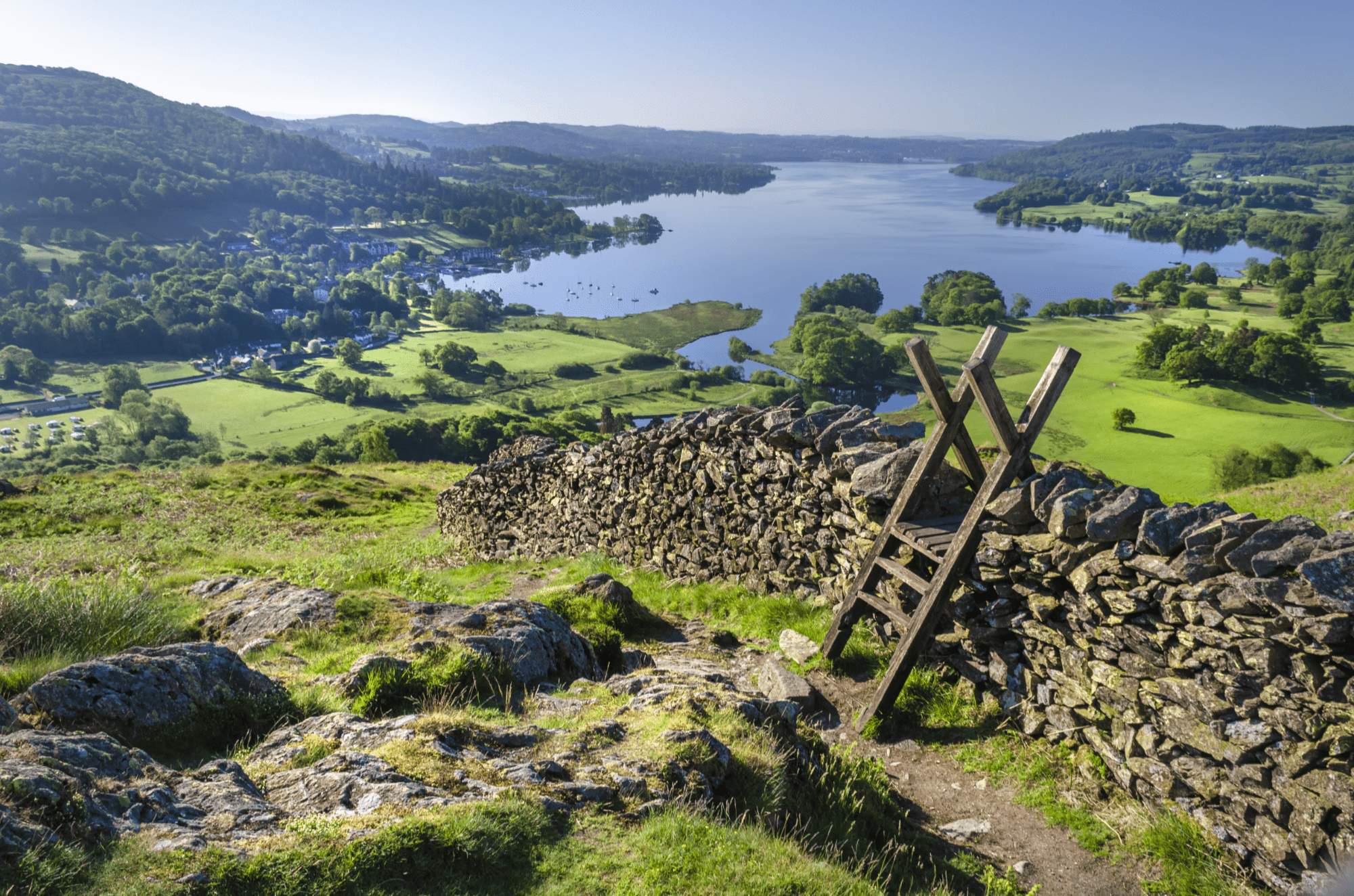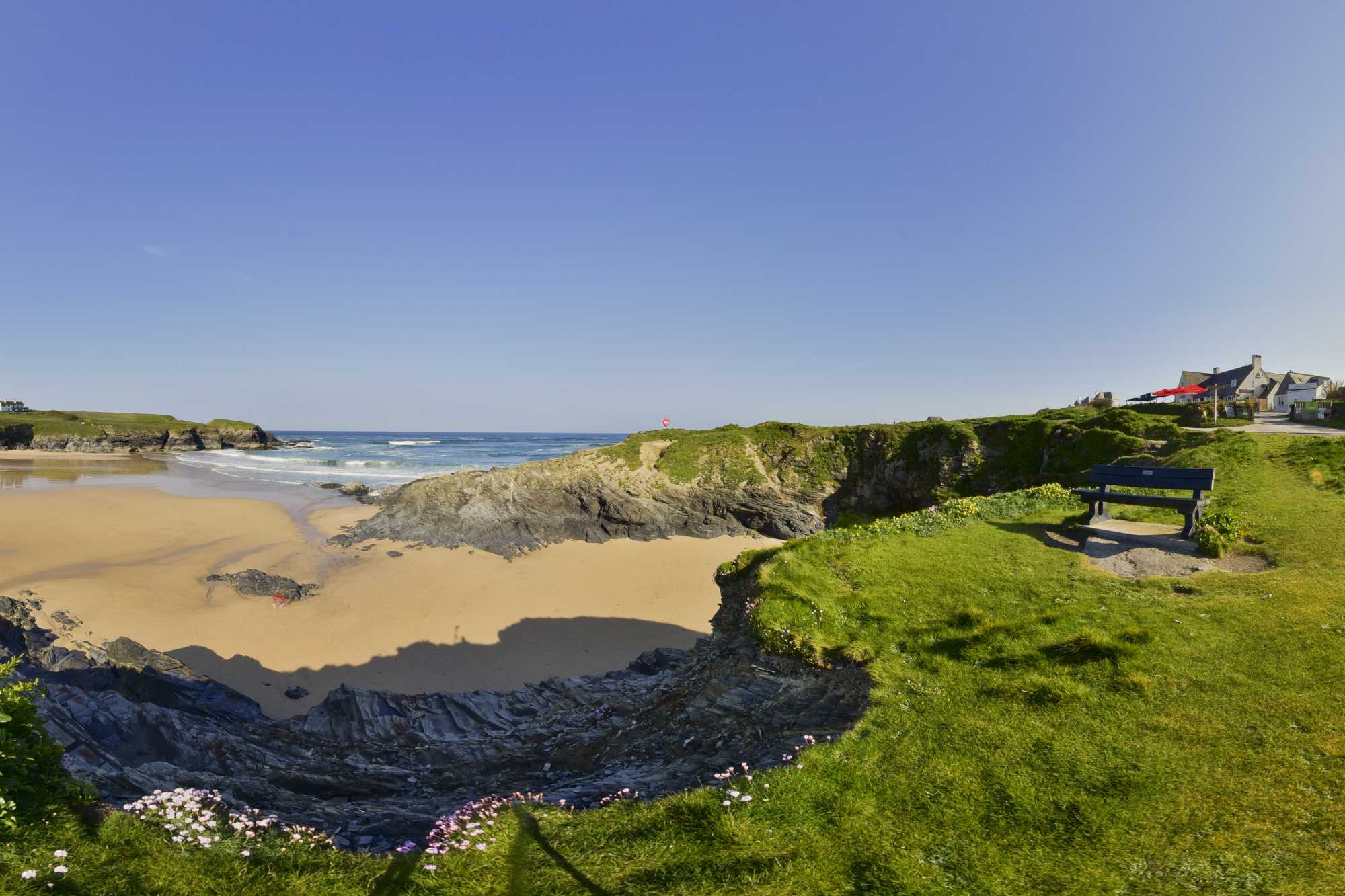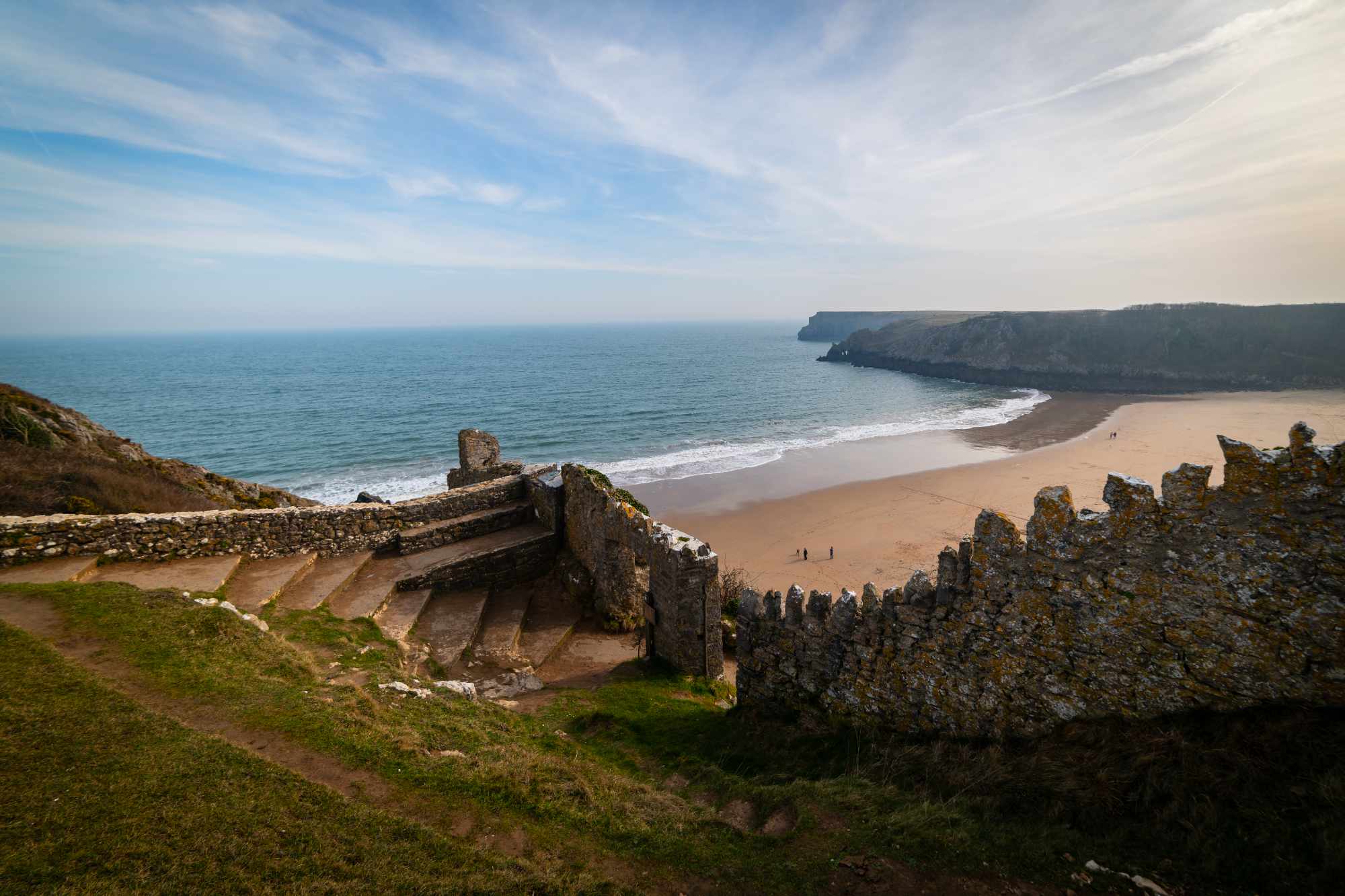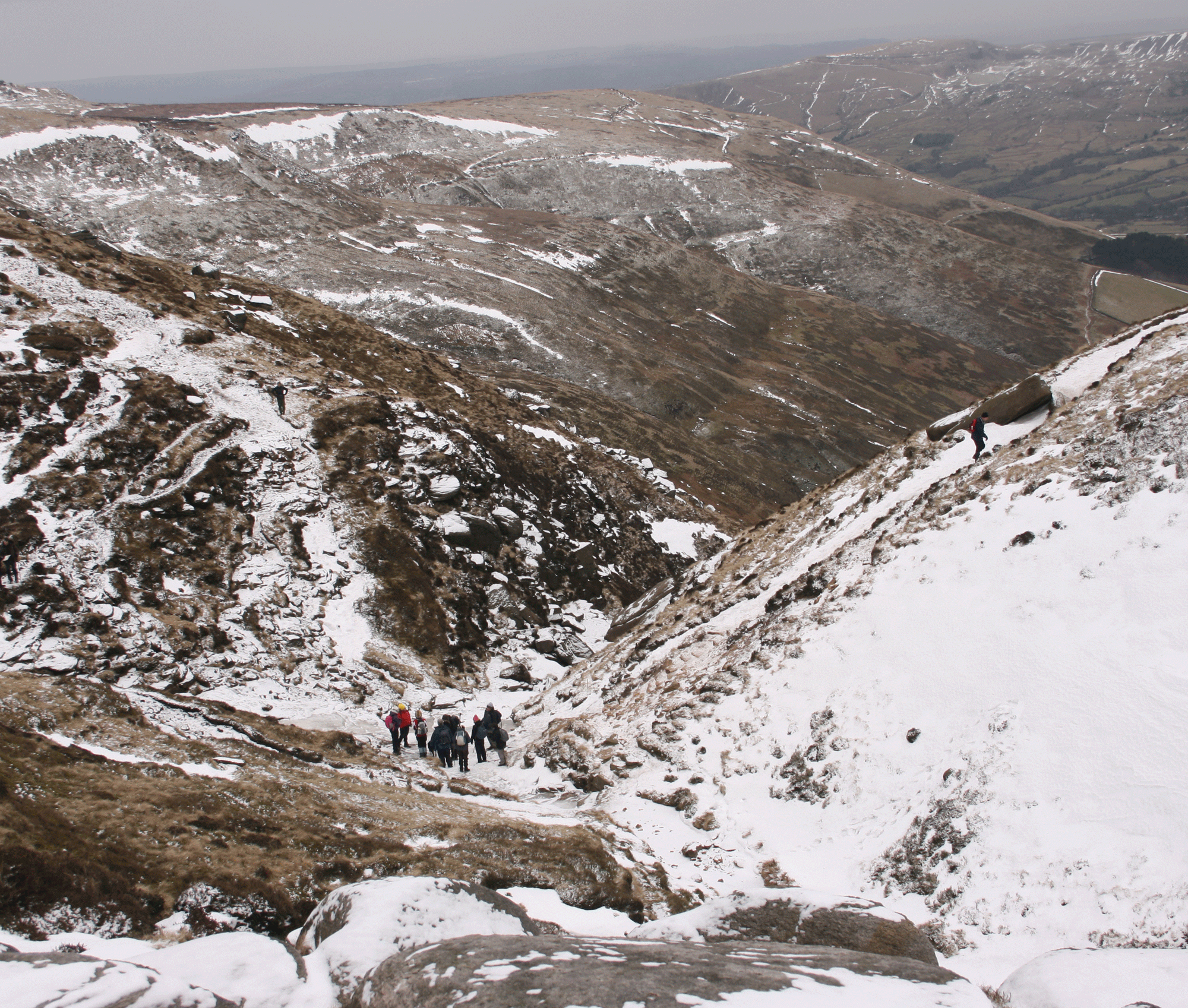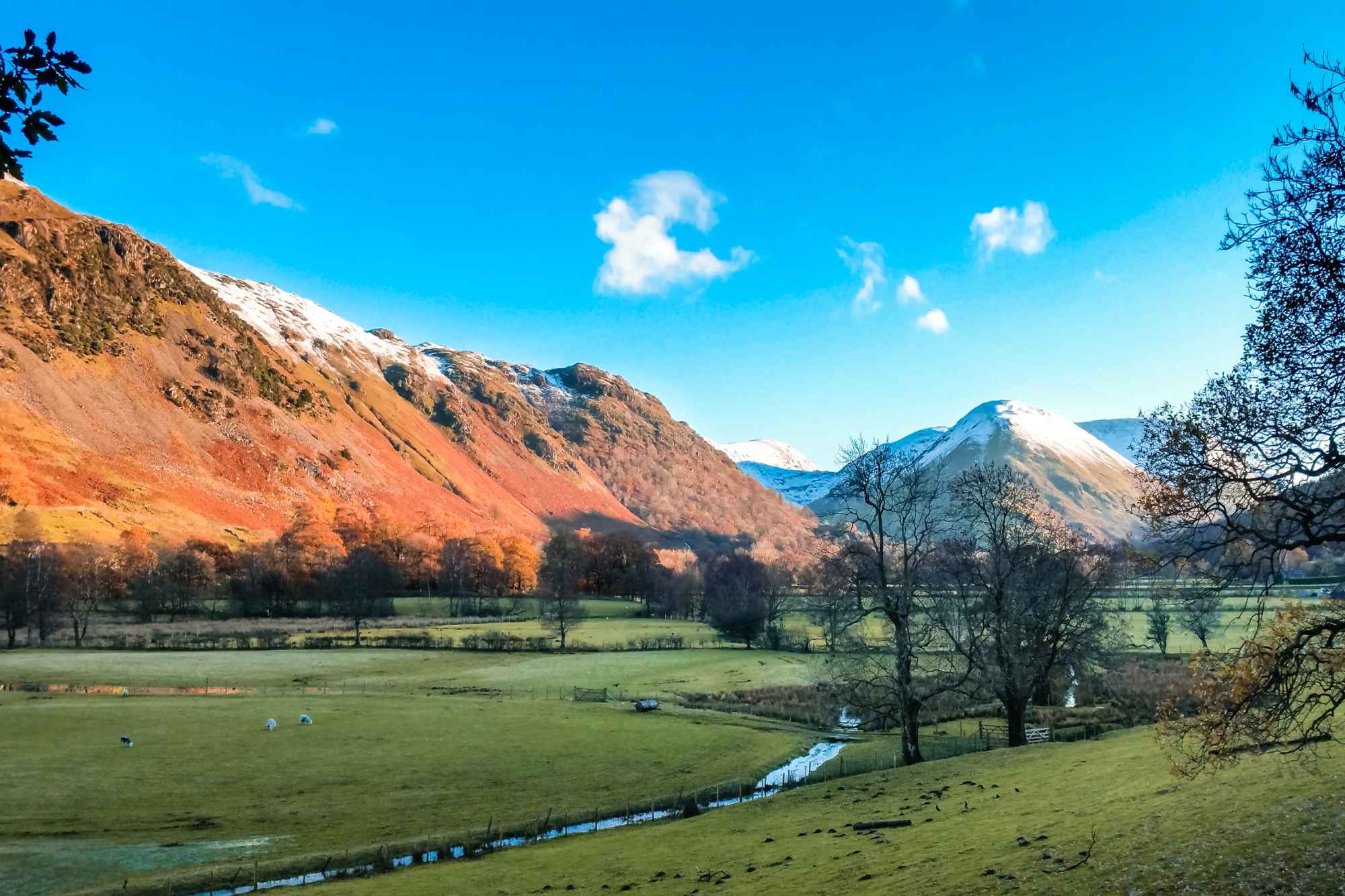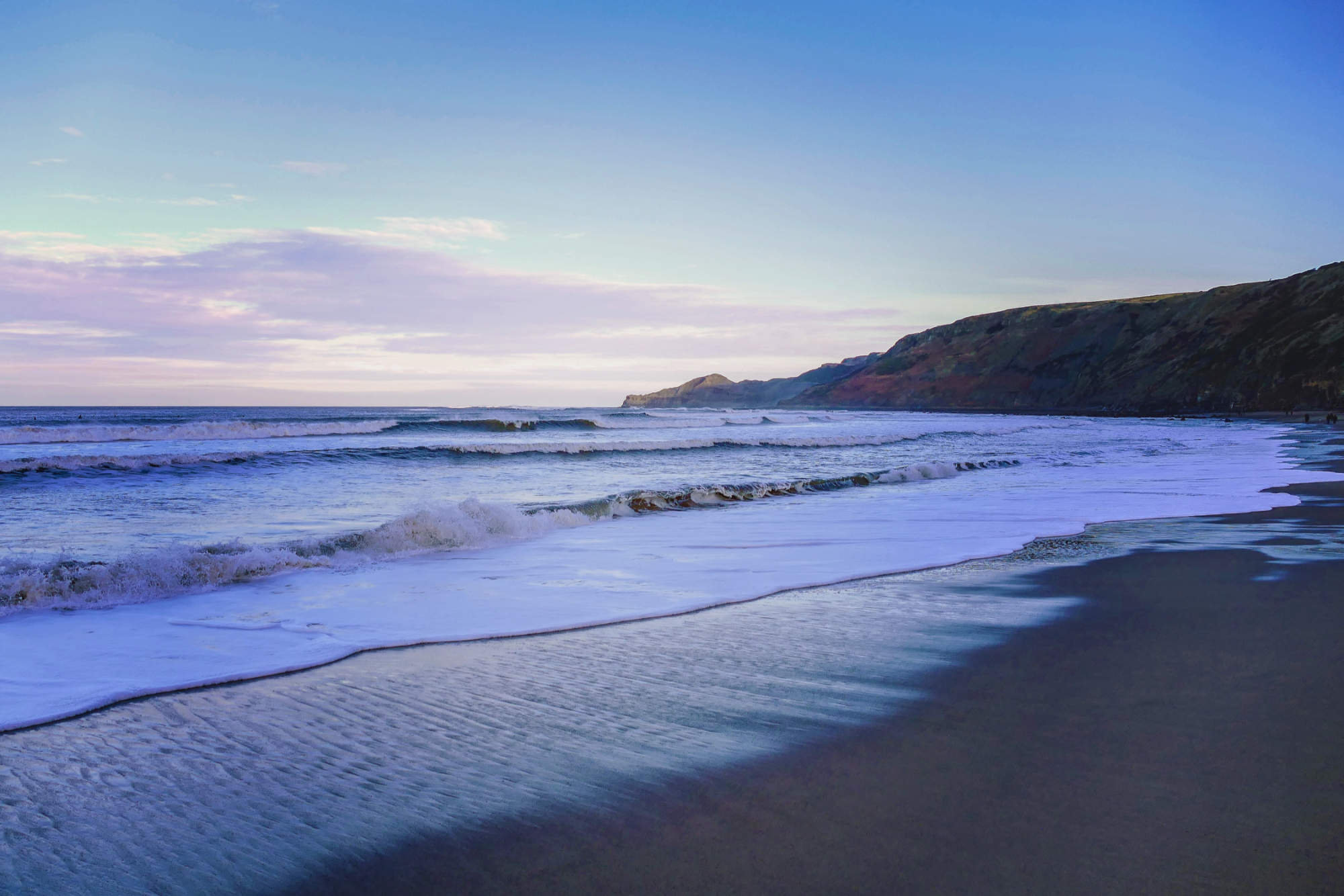Think sustainable travel and you probably imagine wooden eco huts perched on stilts over clear blue seas or luxury African safari lodges looking out over glistening sunsets towards silhouetted giraffes. It’s certainly the dream that’s sold to us by sustainable travel tour operators. However, those glamorous eco friendly holidays are way out of reach for many of us and the flights …well, can you really call long haul flying sustainable?
Greener travel doesn’t have to mean spending your life savings on a one-off trip to Costa Rica or Tanzania. In fact, it’s relatively simple to enjoy a sustainable break on a limited budget and if you choose to stay on these shores your impact is reduced even further.
Here we explore six easy ways to travel right here in the UK without breaking the bank and with minimal environmental impact.
1. Holiday close to home
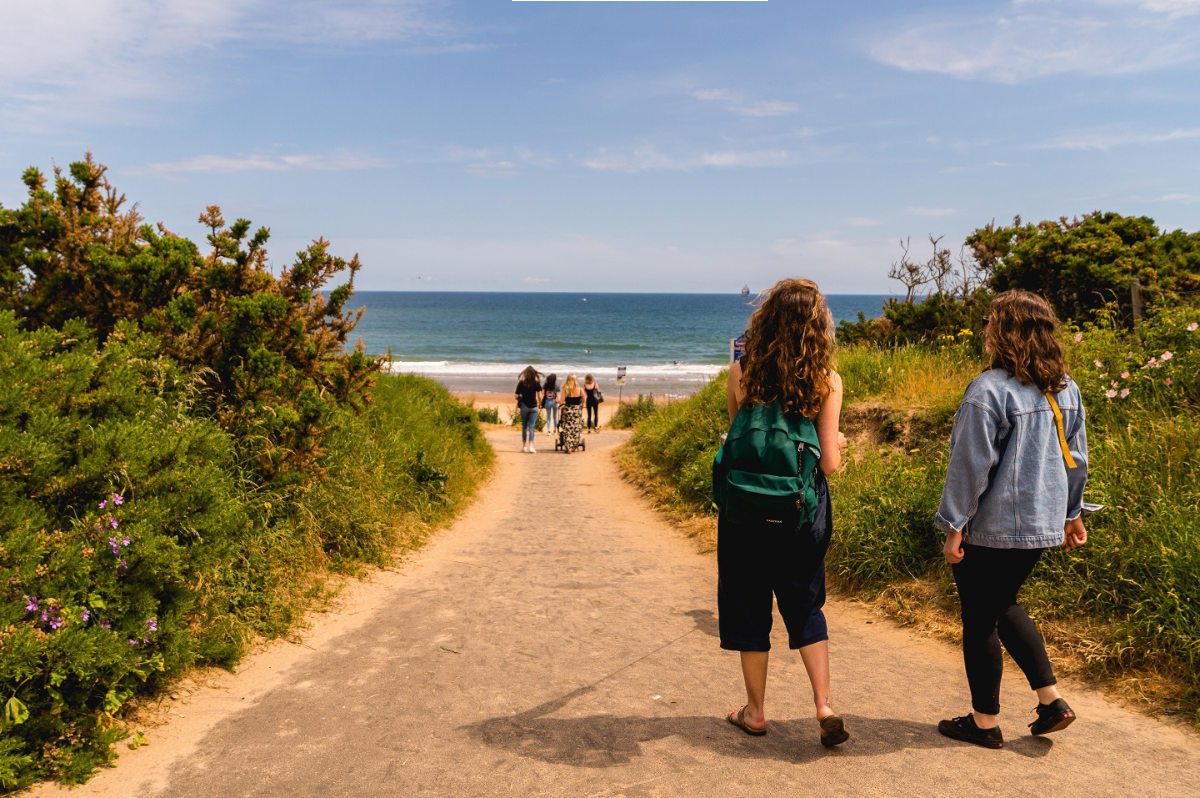
We can see the appeal of getting away to sunnier climes, but it’s easy to forget just how much beauty we have here on our doorstep. From the historic city of Bath to the hills of the Brecon Beacons and the shores of the English Riviera, England and Wales has a lot to offer.
Eschewing air travel is doubtless the single best way to minimise the impact your holiday has on the environment and your purse. The next best thing? Reducing your time on the road or rails. While it may be difficult to imagine taking a holiday within easy reach of your front door, keeping trips within a couple of hours can make a huge difference to your travel carbon footprint and your budget.
So pull out that map and investigate options in easy reach of home! We’re willing to bet there’s a national park you’ve never explored, a coastline you’ve forgotten about or a city left unloved just a hop skip and jump away. Why not try:
• The Peak District: centrally located, the Peaks combine free walks and bike trails with stately homes and Victorian towns
• Suffolk Coast: the chi-chi east coast is ideal for lazy beach days, long lunches and explorations of pretty villages
• Northumberland: increasingly fashionable, historic Northumberland has plentiful coastline, abbeys and castles to explore
2. Use public transport or ride share
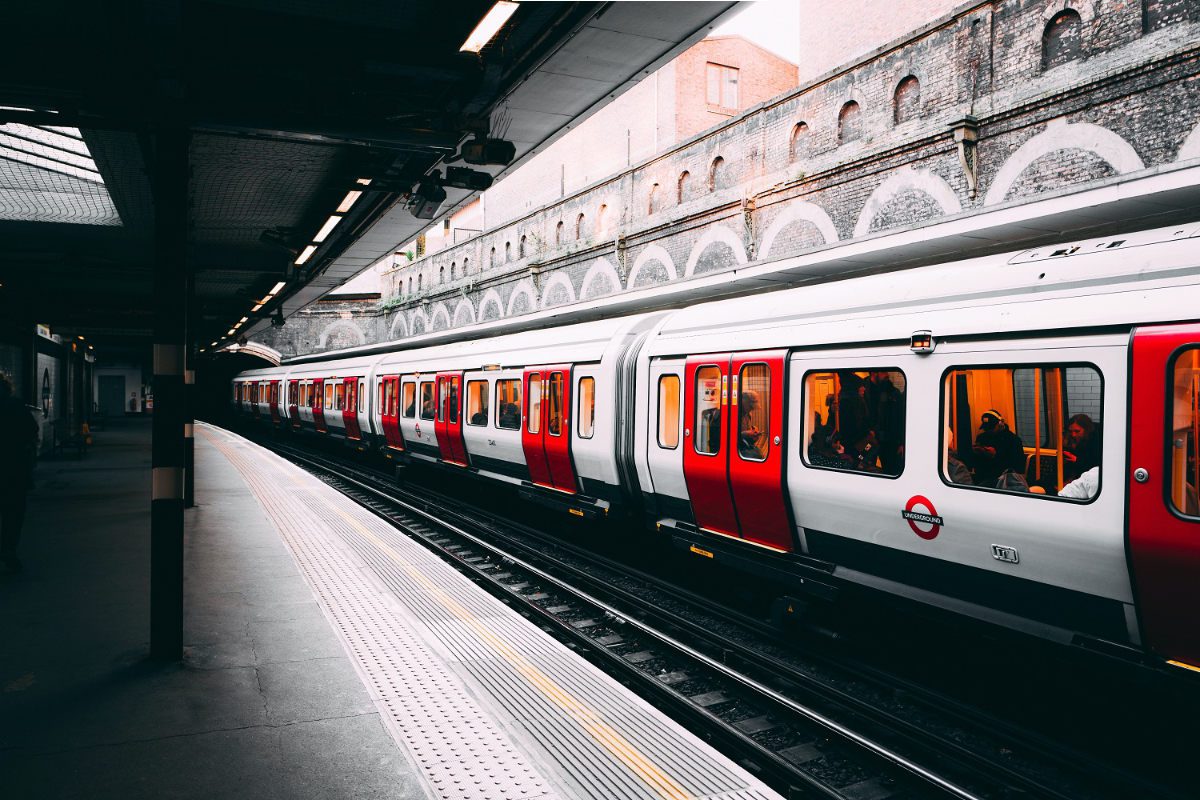
Putting aeroplanes out of the picture might be the one major change you can make, however, any form of motorised travel has a significant impact on the environment, whether you’re going by train, car, bus or boat. Travel is also costly, with fuel prices making long distance travel a financial burden for many of us.
So what is the most affordable and the least damaging way to get from home to your destination, assuming it’s a little too far to hike or cycle? It’s surprisingly difficult to say, given that a lot depends on the fuel used and even the terrain covered, however experts tell us that travelling public transport is generally far better than travelling by car. Trains on electrified lines are arguably your best bet, however train travel in the UK can be extremely costly, meaning that a coach or bus could be a better choice for travel on a budget.
Sharing car travel with friends or family going in the same direction is also a cost effective option that will also help to minimise environmental damage, even better if your car is electric or hybrid. Sharing a journey allows you to split fuel costs while ensuring every seat is filled, keeping your per person carbon impact to a minimum. You can also split driving duties for a more leisurely trip.
3. Choose hostel stays
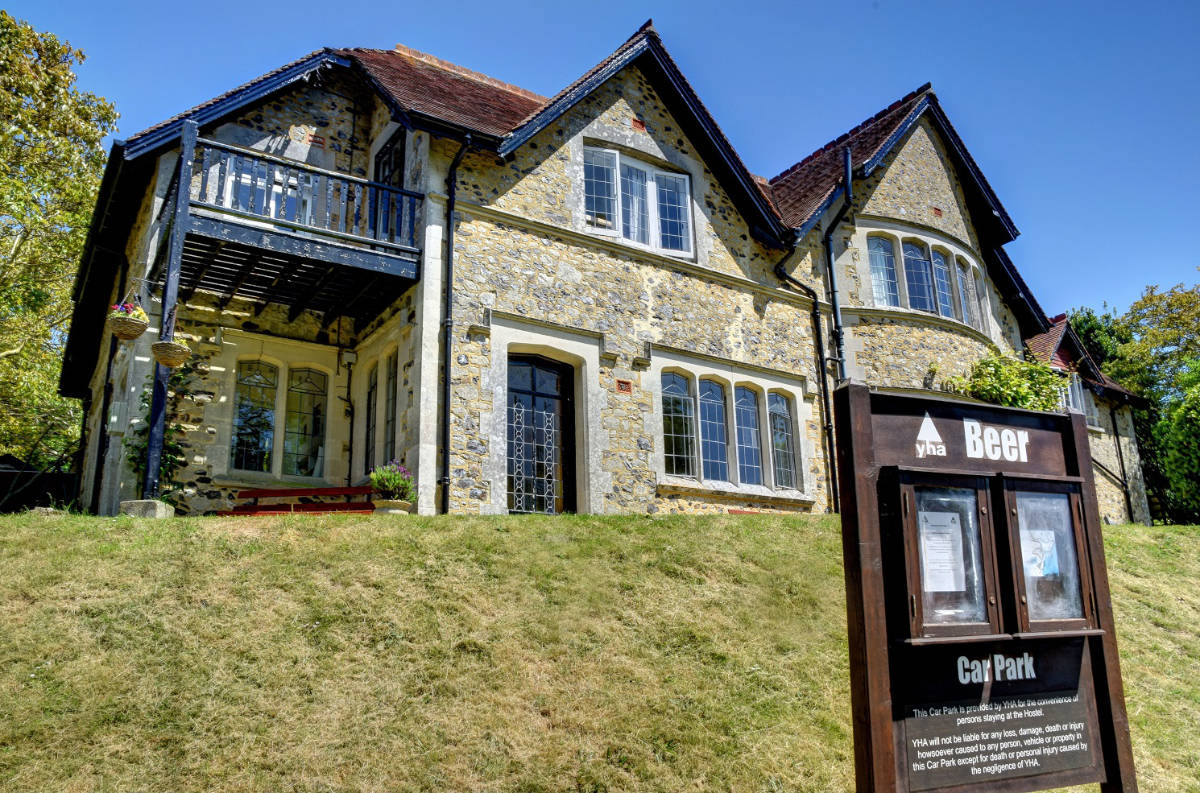
Hostels are having a bit of a resurgence right now. Popular with green travellers, a hostel is an affordable alternative to hotels offering similar facilities, often in even better locations.
Take YHA London Central, close to Regents Park and is just a short stroll from the West End. With prices starting from under £50 per night for a private room and from less than £140 for a four person en-suite, this provides a saving of around £200 on a room for two or over £300 on a family room compared to the nearest big chain hotel. YHA Oxford Street, meanwhile, is one of TripAdvisor’s GreenLeaders. Offering private rooms for under £100 per night, this hostel is designed for sustainability.
Out in the countryside, YHA hostels are cost effective and green alternatives too. They’re often in spectacular locations and boast special buildings too. A beautiful historic manor with scenery that has earned the title of Britain’s Favourite View, YHA Wasdale Hall has a water refill station, a licensed bar and a restaurant serving sustainable local produce, plus it’s ideally located for eco-friendly and free hikes and climbs. All for less than £150 for a comfortable private room sleeping up to four.
For better hostel sustainability look out for:
• Renewable energy
• Recycling facilities
• Restaurants/cafes serving ethically sourced, organic food
• LED lighting switched off in unused areas
• Water-saving showers
4. Share your stay

Group travel is a sensible way to save money while also maximising your green credibility. We already know that a car share can help to reduce your per person impact on the environment, but have you considered that staying together could help too? We all love the privacy and comfort of exclusive rental, but not only can holiday cottages by pricey, they can often be carbon monsters too.
Inviting family or friends along for a group stay not only helps to spread the cost of private hire while also making holidays all the more fun, it could also reduce the environmental damage your break can do. For example, running a boiler to heat a house or burning fossil fuels on a log burner can add significant kilos to your carbon output, however if more of you are in a building less of that output is wasted and your carbon footprint is more fairly split. You’ll also be making small but significant changes like running a full dishwasher rather than one that contains just the dirty dishes of two people.
To really save on costs take a look at the YHA’s exclusive hire options. For example, for less than £400 per night, YHA Perranporth has space for several families in a uniquely spectacular location overlooking the Atlantic and the sandy coves of Ligger Bay.
5. Shop locally and self-cater

Here in the UK eating out is unavoidably expensive, adding serious pounds to your staycation. It can be especially tough to find sustainable dining options that don’t break the bank. That’s why choosing self-catering can be a genius move. Not only will you save yourself valuable cash by cooking for yourself, you’ll also broaden your green options, with organic produce brought from local suppliers who can give you the information you need to make educated choices about the food and drink you consume.
Ignoring supermarkets in favour of local outlets is a must when holidaying in Britain. After all, our countryside is awash with amazing zero air mile produce, making it easy to enjoy field-to-fork eating at prices comparable to the big chains and significantly cheaper than dishes found in restaurants and pubs. Additionally, shopping with smaller suppliers not only helps to support local communities, it makes it easier to reduce packaging. Bring your own bags, jars and tubs to be filled at the butchers, the bakers and the deli for saintly zero waste shopping without plastic bottles and polystyrene trays.
Most YHA hostels offer shared self-catering facilities, making budget eating easy, while some also have BBQ spaces for outdoor cooking. YHA Helmsley is a top pick for foodies, located close to the North Yorkshire foodie meccas of Whitby and Malton.
6. Make your own entertainment
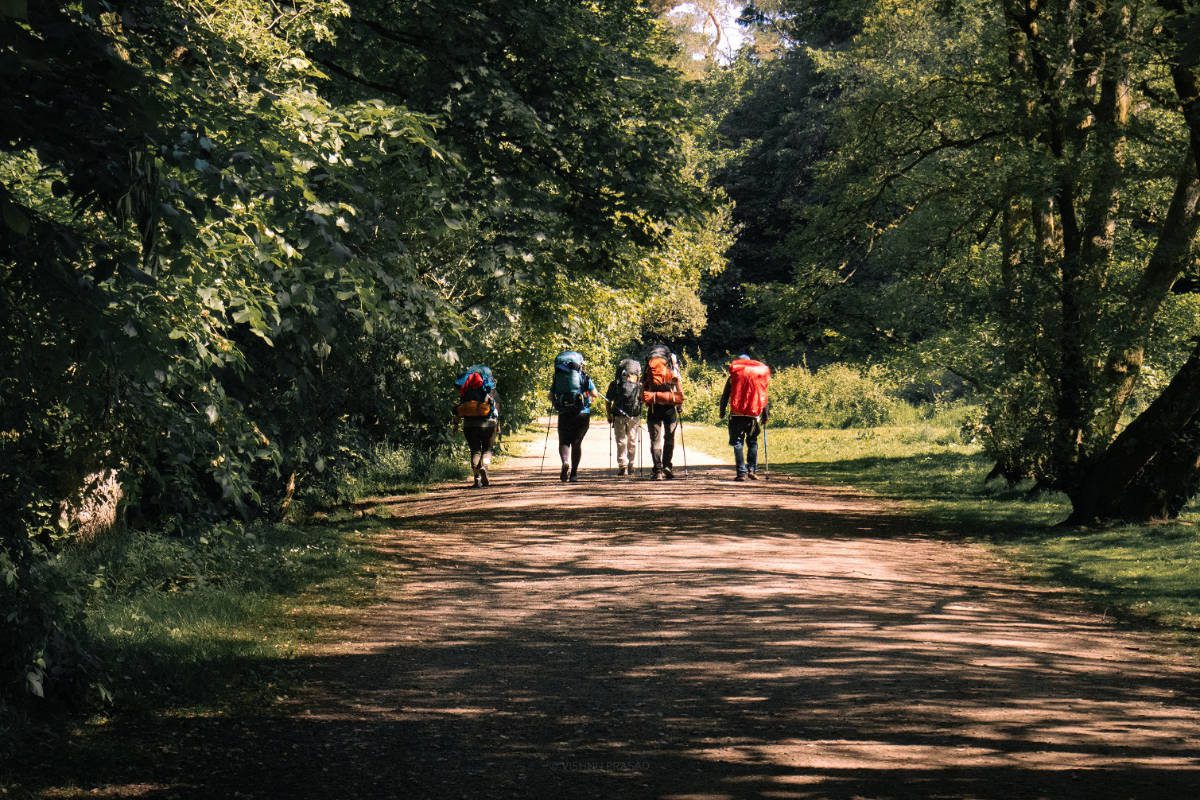
When holidaying on a budget, finding affordable days out can be a chore. But there are ways to reduce your entertainment spend and your environmental impact at the same time:
Hike and bike
Few things are as exhilarating or as affordable as a person-powered journey. Walking requires just a sturdy pair of shoes and a good OS map and a whole holiday can be dedicated to completely carbon neutral stomping. Alternatively hop on a bike and get further afield following the miles of bike trails to be found all over the country.
Make exploring fun
Creating personal missions – natural wildlife spotting, visiting every lighthouse on the UK mainland, foraging for mushrooms or following a river from source to mouth – can gives days out purpose. This can be especially valuable for small children who can become quickly bored without something to focus on.
Be inspired by gardens
Stately homes and monuments can have prohibitively expensive entry fees. However, visiting their grounds is often much cheaper and means that you’re not contributing to the energy waste of huge chandelier-lit halls.
Seek out smaller attractions
On days when only an organised day out will do opt for small local museums or farms. Not only do these tend to be much cheaper than larger, more famous attractions, they’re also more likely to be run sustainably.
Discover more about YHA.






